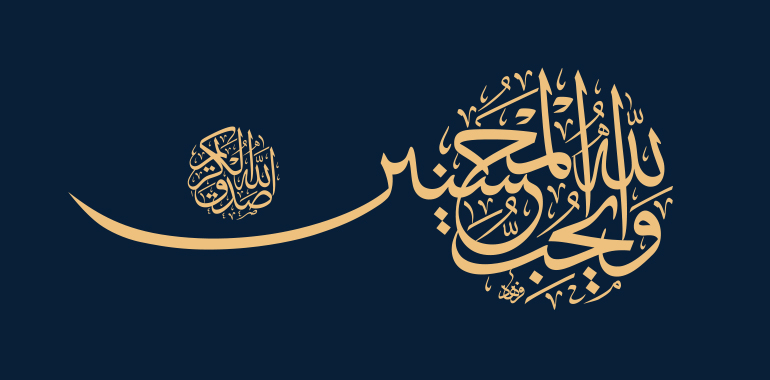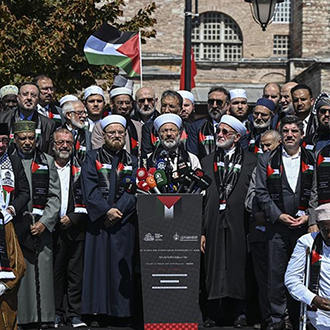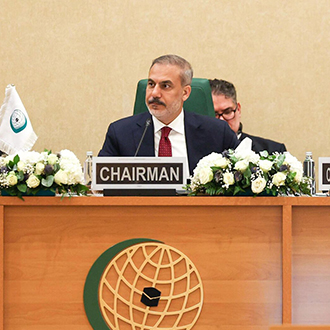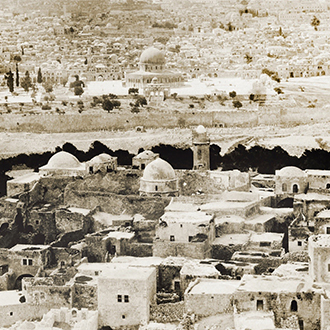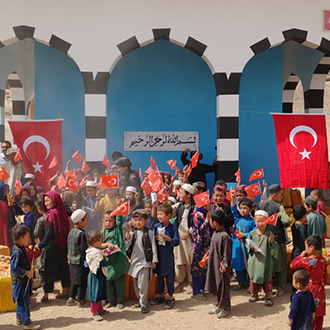Life is the journey in which good deeds are sought. Human being is a passenger in this life; he has faith in Allah and does good deeds... It is Allah Who creates humans, protects them, bestows blessings upon them, and embraces them with His Compassion. It is He (swt) Who has created death and life to test which of us will do better deeds (Mulk, 67/2). Then, life is a trial to measure goodness.
The verse “Do good, for Allah loves the good-doers.” points out to the most valuable goal that can be achieved by those who turn life into a journey of pursuing goodness: to earn the love of Allah... The reverse of it is embarrassment, deprivation, and sorrow. A bitter end waits for those who stay away from goodness, and serve instead for evil: “Whoever comes [on the Day of Judgement] with a good deed will have better than it; and whoever comes with an evil deed - then those who did evil deeds will not be recompensed except [as much as] what they used to do” (Qasas, 28/84).
In the essence of creation there is goodness. Evil, on the other hand, is the greatest obstacle to happiness in the journey of life. One day, one of the Companions of the Prophet, named Nawwas ibn Sam’an, asked the Prophet about righteousness and wickedness. Our beloved Prophet replied, “Righteousness is good character, and wickedness is that which disturbs your conscience and you do not want others to be aware of” (Muslim, Birr, 15). On another occasion said our Prophet (saw), “Bad words and behaviors have no place in Islam. The best people in Islam are those who have the best morality” (Ibn Hanbal, V, 100).
Then, faith (Iman) and Islam are each an invitation to goodness. Sometimes this goodness appears as good morality, virtue, and merit; sometimes as charitable works and good deeds, almsgiving and zakah; and sometimes as a warm hug, a sweet word, and a smiling face. The name and manner of it may vary, but its importance and value never change.
Goodness means striving to be good. Ihsan, which means doing heartfelt kindness by expecting its reward from Allah only, is the highest level of faith and worship. Ihsan means adopting an approach to Allah as being aware that Allah always sees and hears you, and doing good deeds to earn His approval. Ihsan means turning towards the Ka’bah and standing in the divine presence of Allah, striving to comprehend Allah’s might when the forehead is on the ground for prostration, getting purified by fasting and zakah, or mentioning Allah’s name in tears in the humblest manner, alone in a corner… They each are worships; they each are goodness. Each of these actions is considered both worship and goodness.
Goodness is to avoid evil. Goodness is not to get closer to the illnesses of the modern era, and to stay away from sin, oppression, and disobedience. Goodness is to stay away from illicit gains, and quit being indifference to and disrespectful for labor. Goodness is to keep oneself away from the tricks of the nafs (self) and the whispering of the Satan, as well as from self-pride and sensual desires. Goodness is to put the dress of taqwa (piety) on and strive to be resolute on the path to salvation and persevere in salah (prayer) and patience.
Goodness is to be a company for the lonely, a wall for the tired to lean on, and a haven for the homeless to take shelter in. Goodness is to welcome the refugee, and share one’s bread with them. Goodness is to extend a helping hand to the orphan and the widowed, and meet their needs. Goodness is to accommodate the traveler, and to guide the stranger on their path. Sometimes, goodness is to ask children how their wellbeing is, and other times it is to take hold an elderly’s hand.
Goodness is to give without expecting anything in return. Goodness is to be a giving hand and to share one’s strength, energy, experience, property, effort, love, and mercy, without expecting anything worldly in return. Goodness is to be conscientious, sacrificing, just, and compassionate. Goodness means praying, supplicating, and greeting. Goodness means planting a tree sapling sometimes, and some other times it means feeding a hungry cat. You can feel the scent of goodness in a plate of food offered to the neighbor, or hear the tune of goodness in the voice of a person telling the directions of an address. People do goodness when they try to establish peace between the relatives who are on bad terms, and also when they work day and night to sustain their families through lawful and deserved income.
In short, we can see, do, and feel goodness in every moment and at every place during the course of our life. The Verse 177 of the Surah al-Baqarah in the Holy Qur’an refers perfectly to the scope of all such good deeds as follows, “Righteousness is not that you turn your faces toward the east or the west, but [true] righteousness is [in] one who believes in Allah, the Last Day, the angels, the Book, and the prophets and gives wealth, in spite of love for it, to relatives, orphans, the needy, the traveler, those who ask [for help], and for freeing slaves; [and who] establishes prayer and gives zakah; [those who] fulfill their promise when they promise; and [those who] are patient in poverty and hardship and during battle. Those are the ones who are true, and it is those who are the righteous.”
What suits a human is to do good deeds. Our souls are fed by good deeds. What goal can we have as Muslims other than trying to become a better person and increase in number the good deeds we do? What duty can we have as Muslims other than embellishing our faith with our good deeds, and paying the utmost attention to follow Allah’s orders related to good deeds and to take heed of His warnings related to evil deeds?
Then, we should free ourselves from the mindset “do evil to those who do evil to you”. We should treat well all people regardless of their ethnicity, gender, color, language, or religion. We should try to spread good in our environment, starting from our parents, spouses, and children. We should teach our children the goodness, make them familiar with good examples, and invest as a family in goodness, because goodness is a never diminishing investment.
Let us ensure that our relatives, neighbors, colleagues, and clients all receive goodness from us. Let us ensure that the hearts in the society that are thirsty for goodness satiate their thirst with goodness from us. Let us make effort in order to increase our good deeds and be a source of goodness for others. Let us accumulate, distribute, and produce goodness in our life, while always praying, “Oh Allah! Grant us goodness both in this world and in the Hereafter. Save us from the fire of the Hell” (Muslim, Dhikr, 26).



